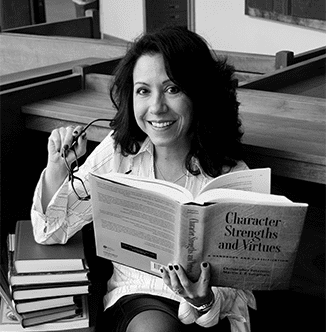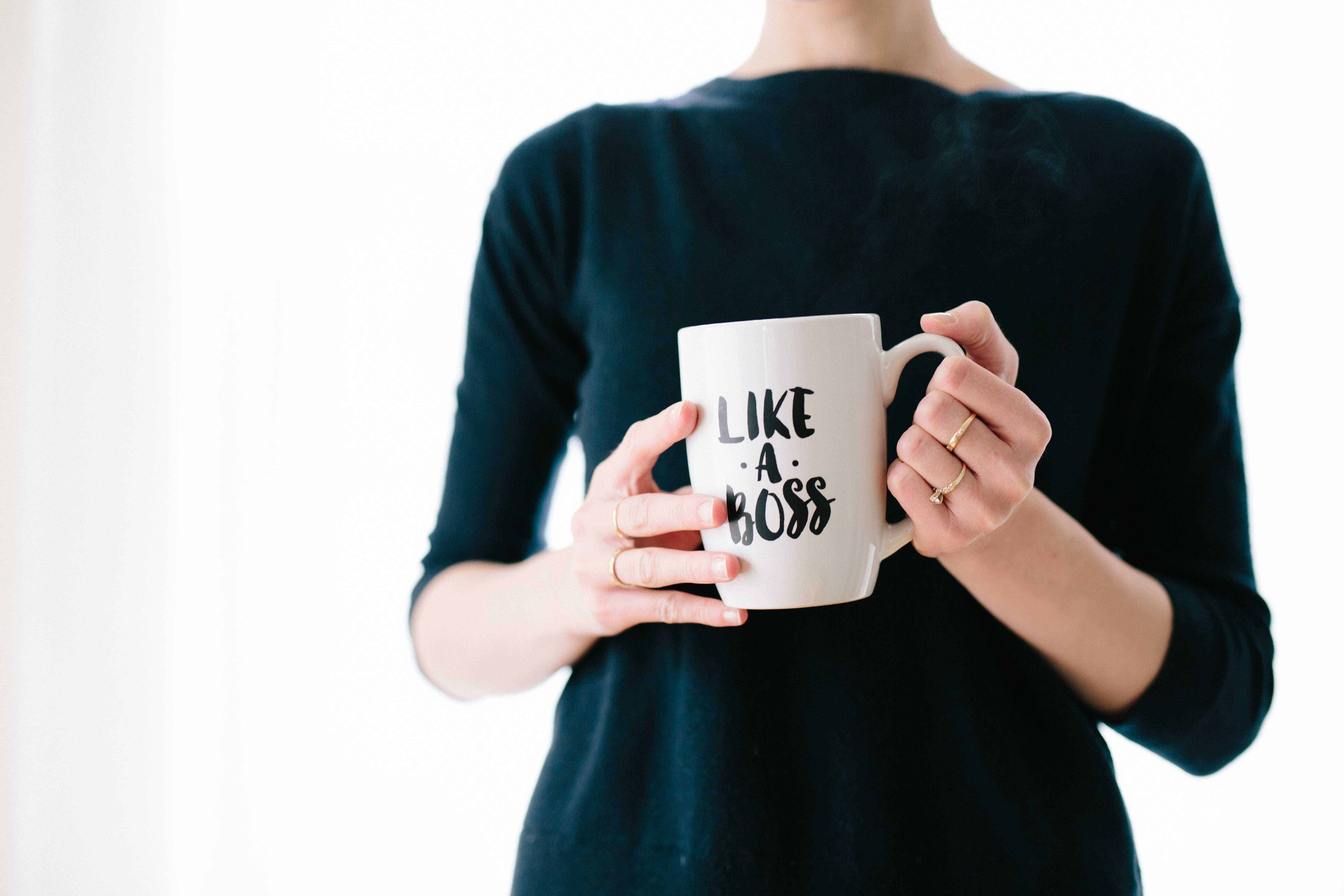Do you often feel mired in self-doubt? There’s no reason to stay that way.
Louisa Jewell’s Wire Your Brain For Confidence is a treasure trove combining reams of positive psychology research and personal anecdotes into a readable, functional guide that will set you on the course of feeling more confident in every sphere of your life.
“Studies have shown time and again that women are less confident than men, but having confidence gets you ahead in life,” says Jewell. “My book presents the most effective and proven techniques, with real-life examples, for increasing confidence and managing self-doubt.”
We chatted with Jewell about the book and how we can help ourselves (and those around us) beat self-doubt and gain confidence to pursue our dreams.

SDTC: As women, we often feel we have to be perfect in every sphere of our lives. So I really enjoyed your Peace at 6 strategy, where you identify the three domains in your life that will take priority (i.e., eating well, romantic relationships, making money) and assign them a value of 10. They’re what you’ll expend your energy on. All the other domains (e.g., housework, volunteering) are then assigned a priority value of 6, and you can be at peace with not being perfect in those domains. How has that worked for you personally?
LJ: That was such a revelation to me. The research backs this up too, with regards to how many domains women feel they have to be playing in. So now I don’t want to go back to the Dark Ages. I’m really happy that I can have a career and feel that I have so many more options in my life.
But it’s the feeling that you’re never good enough if you choose one course of action (e.g., if I go to work, then I’m not being a good mother because I’m leaving my child, or I’m staying home and I’m not the career woman I thought I was because here I am taking care of my kid). You’re always regretting the domain that you’re not playing. I realized I couldn’t do it anymore. I wanted to be able to find a way to feel good about my choices and say it really doesn’t matter what other people think. It matters what is important to me and to my family and to be able to focus on those things joyfully without feeling guilt or regret about not doing all those other things.
It was such a great revelation for me. Also, the housework thing was really, really big. To just let go. I’m not one of those women that has a perfect, beautiful home. I have lots of friends that do, but they’re also not doing other things that I’m doing. It’s about feeling good about the things you are engaged in and letting go of the rest.
Do you think social media and this never-ending access to other people’s lives exacerbates our sense of insecurity and makes us feel less confident?
Absolutely. And we can’t help it because we’re social creatures. I hope that was one of the messages that came out of the book is how socially wired we really are. As women, we care about our relationships, but we also care about our relationship to the world: Where do I fit in? If I’m on social media and my friend’s got a boat and a big house and drives a Mercedes-Benz, is that the standard with which I feel I need to be at, and if I’m not there, then there’s something wrong with me. I’m not measuring up. I did something wrong.
And it’s totally naturally for us. We learn everything by watching other people. We do that starting from when we’re babies. But once you have an awareness, it could be affecting your well-being, then you can say, “It’s time for me to stop comparing myself to others and just run my own race.” Tell yourself. “I’m doing just fine and things will come to me when I’m ready for them to come.” And feel okay with that without negatively comparing yourself to others.

Louisa Jewell
Are women more or less confident than they were thirty years ago?
I think what has changed now is that we have so many more options open to us. Nowadays everything changes so fast. Now there are so many more domains for women (e.g., be a stay-at-home mom, be a business woman, start a business, start a non-profit, start a digital company) and with social media: “I can’t have wrinkles. I can’t have dark spots. I can’t have split ends. I need to be thin!” It’s always putting us in a state of self-doubt because we’re constantly questioning, “Well, who am I now?”
Women are twice as likely as men to become depressed. Studies look at countries where women have greater freedoms – do you think they found more depression or less? They found more. You would think women have more freedoms and they’re happier. No! Again I think it comes back to this idea that we think we have to be excellent in too many domains and we’re just stressed out trying to be all of those people. We just can’t do it. It is much more difficult for women to feel confident in this day in age.
In your research for this book, did you uncover anything that surprised you?
First of all, I thought that you were born with confidence, or you’re not. When you take a look at some of the research, there are certain behaviours we carry in our DNA that could be a factor. But essentially, confidence is a built skill-set.
It really surprised me that confidence is socially constructed. Everything is affected by our social standing with people and how that factors into our confidence levels.
What should we know about our capacity to build up our own self-confidence?
I think that it comes with an awareness of your own psychology and behaviour. Once we know why we do things, it can be easier to know the solution to overcome the fear or the obstacle. If I’m attempting to accomplish something but I’m procrastinating or self-sabotaging, I can take a look and say, “This is one of the behaviours that I need to be watching out for. What’s going on?” I think women have the capacity to have that awareness.
What if we have a friend who is sorely lacking confidence? How can we give them a boost?
Often what I do when I see someone who is lacking in confidence is I listen to what they’re saying to themselves. I can hear it. I talk to highly accomplished women. One was an executive level director of a 45,000 person company. She was talking about going for a board position. I said, “Well, what’s stopping you?” She said, “Who am I?” I thought, oh my gosh, there’s the self-doubt.
Sometimes I just say to women, “I never ever want to hear those words out of your mouth ever again. I don’t want you to say them to me and I especially never want you to say them to yourself ever again.” And then they just look at me and they say, “Okay.”
Sometimes that’s all it takes – to set them straight. It’s so empowering sometimes. This is why I dedicate a chapter in the book to reframing what you say to yourself after a disappointment. It’s really important to building your confidence.
Should we strive for confidence or happiness?
I was a pretty confident person but I would go home every night and question everything and ruminate about everything. I had so much self-doubt, it was killing me. It was robbing me of my happiness. Once I learned how to be truly, calmly, authentically confident, I didn’t question myself anymore. I came home at night happy.
Also, when I had a lot of self-doubt and engaged in certain activities, or if people asked me to work on certain projects – I was so anxious! I would work fifty hours on something that would take me five hours to do. It was just exhausting.
If you conquer your chronic self-doubt, and you calmly go into things and trust in your abilities to manage the situation, it can be so freeing. For me, I think confidence fuels happiness.



 Follow Us On Instagram
Follow Us On Instagram
